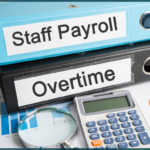Pursuant to President Trump’s Memorandum “Deferring Payroll Tax Obligations in Light of the Ongoing COVID-19 Disaster,” available here, employers will be allowed to defer the withholding, deposit, and payment of the employee portion of Social Security taxes if the employee’s bi-weekly pre-tax pay is less than $4,000. The eligibility of this tax deferral is from September 1, 2020, through December 31, 2020, and it is the employer’s decision on whether to implement the payroll tax deferral. While no penalties, interest, or fees accrue during the deferment period, any deferred taxes must be repaid through increased withholdings during the proceeding four-month period from January 1, 2021, through April 31, 2021, or interest and penalties will begin to accrue starting on May 1, 2021.
As directed by the Memorandum, the IRS issued additional guidance for employers in implementing the payroll tax deferral. Specifically, the guidance clarifies that the wage threshold is determined each pay bi-weekly period in isolation – that is, if an employee is under the $4,000 threshold one bi-weekly pay period but not another, the employee is still eligible for the tax deferral for the bi-weekly pay period(s) meeting the threshold requirement. Also, the guidance states that the employer is considered the “Affected Taxpayer” and is thereby responsible for the repayment of the deferred taxes through future increased withholding. Accordingly, it is the employer that could be subject to penalties for failure to repay the deferred taxes, not the employee.
Although the IRS guidance does provide some additional details in terms of how the wages are to be calculated and an employer’s repayment responsibility, there still remain unanswered questions. Specifically, it is not yet clear whether self-employed individuals can make this election or what happens if an eligible employee leaves the company before the deferred taxes are repaid. The IRS guidance does provide that that employers can “make arrangements to otherwise collect the total applicable taxes from the employee” although no additional information is provided.
We will continue to update you about tax considerations relating to the COVID-19 pandemic, including payroll tax deferral, as more information and guidance becomes available.
Please contact Matt Malcolm, your KDDK attorney or any member of the KDDK tax planning practice team for additional information and individualized guidance on this or any related topic.





